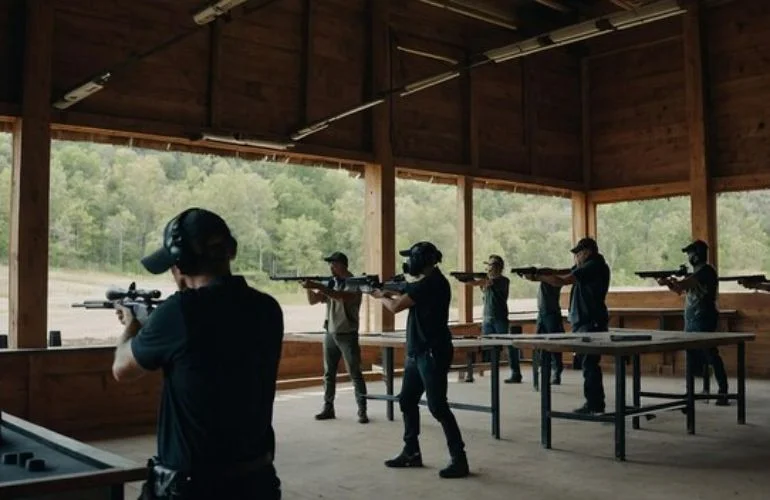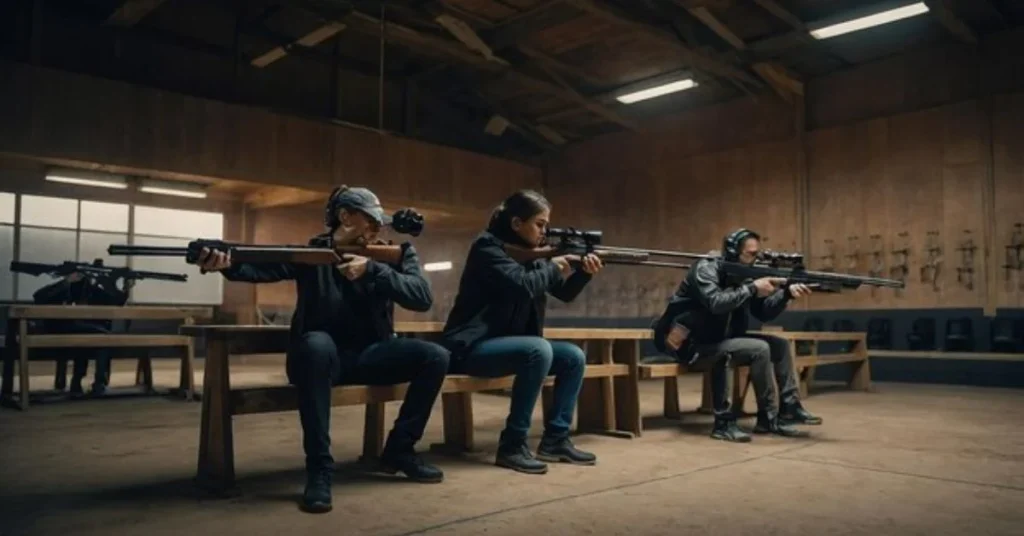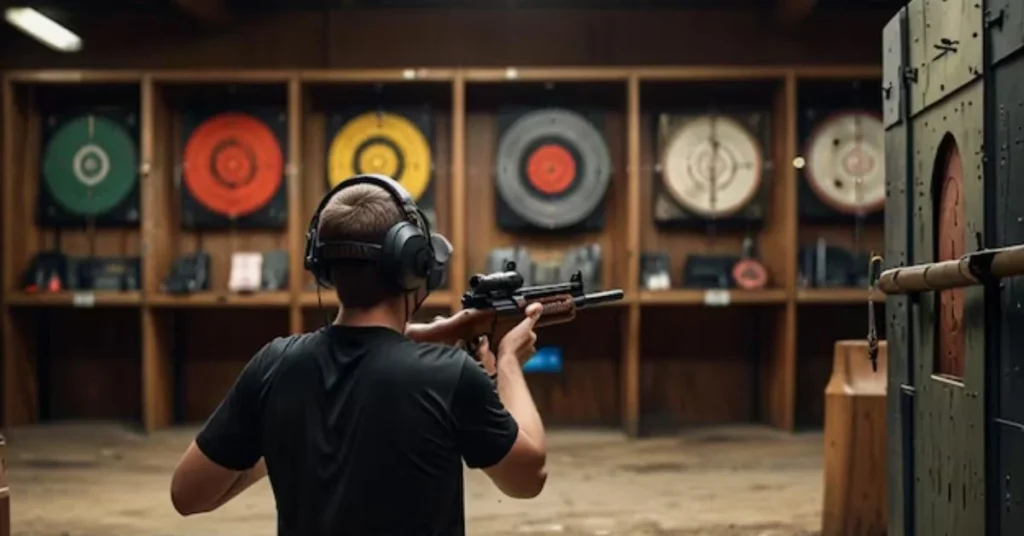
Starting a shooting range in Michigan can be a rewarding business venture. However, understanding the legalities and obtaining the right permits is crucial for a successful start. If you’re thinking about opening a shooting range, you’ll need to familiarize yourself with Michigan shooting range business permits. This guide will walk you through the requirements, steps, and considerations to help you get started smoothly.
Why Michigan Shooting Range Business Permits Are Important
To operate a shooting range legally in Michigan, you must secure the proper permits. These permits ensure that your range is safe, compliant with state regulations, and does not pose risks to the surrounding community. Without the right permits, you may face fines or legal actions, making it critical to know the requirements upfront.
Understanding the Types of Permits Needed
When setting up a shooting range in Michigan, you’ll encounter several types of permits. Each serves a specific purpose and ensures that various aspects of your range meet legal standards. Here are the most common permits required:
Must read Welcome tohttps://modernbusinesslife.com: Your Ultimate Business Guide
Business License
Every business in Michigan needs a business license, including shooting ranges. A business license allows you to legally operate in your area. To obtain one, you need to apply through your local county or city government office. The requirements for a business license can vary depending on your location, so it’s essential to consult your local authorities.
Zoning Permit
Zoning permits are necessary for setting up a shooting range because they ensure that the location of your range is appropriate. Local zoning laws determine where a shooting range can operate based on noise levels, safety concerns, and community impact. Before purchasing or leasing a property, verify that it is zoned for shooting range use.

Environmental Permits
Operating a shooting range involves the use of ammunition, which can introduce lead and other contaminants to the environment. As a result, Michigan shooting range business permits often include environmental permits. These permits ensure that you manage waste properly, such as spent bullets, and that you follow regulations to minimize environmental impact.
Firearm License
For any business involving firearms, including shooting ranges, a federal firearm license (FFL) is often necessary. The FFL is issued by the Bureau of Alcohol, Tobacco, Firearms, and Explosives (ATF) and is required if your range will include firearm sales or rentals. While not every range needs an FFL, many choose to obtain one to expand their services.
How to Apply for Michigan Shooting Range Business Permits
The application process for Michigan shooting range business permits can seem complex, but breaking it down into steps makes it more manageable. Here’s a simple overview:
Step 1: Research Local Requirements
Different cities and counties in Michigan may have specific rules for shooting ranges. Start by contacting your local city hall or county government to understand the requirements for business licenses and zoning permits.
Step 2: Prepare a Business Plan
A solid business plan will help you navigate the application process. Include details about the location, target market, safety measures, and environmental management strategies. A well-prepared plan can make it easier to secure permits and address any concerns from local officials.
Step 3: Submit Your Zoning Application
Submit an application for a zoning permit with your local zoning board. This process may involve public hearings where community members can voice their opinions on the proposed range. Be prepared to discuss safety measures, such as noise reduction barriers and security plans.
Step 4: Obtain Environmental Approvals
Apply for any necessary environmental permits through the Michigan Department of Environment, Great Lakes, and Energy (EGLE). This step ensures that your range will not negatively impact local ecosystems. Proper waste management and bullet recovery plans are crucial to obtaining approval.

Step 5: Apply for a Federal Firearm License (FFL)
If you plan to sell or rent firearms, submit your application for an FFL through the ATF’s website. The process includes a background check and may require an in-person interview. Once approved, you can legally engage in firearm sales at your range.
Step 6: Secure a General Business License
Apply for a general business license through your city or county. This license allows you to operate legally in your chosen location. Make sure all other permits and approvals are in place before applying, as the business license will be the final step.
Michigan Shooting Range Regulations You Should Know
To maintain your permits, it’s important to adhere to Michigan shooting range regulations. Here are some key points to keep in mind:
- Noise Regulations: Shooting ranges must adhere to noise ordinances, which vary by locality. Installing soundproofing barriers or operating during specific hours can help you meet these regulations.
- Safety Standards: Michigan requires shooting ranges to follow strict safety protocols, such as the use of backstops and proper signage to prevent accidents.
- Insurance Requirements: Liability insurance is often required for shooting ranges. This insurance protects you from claims in case of accidents or injuries on your premises.
- Firearm Storage and Security: Ranges must ensure that firearms are securely stored and that the premises are monitored to prevent unauthorized access.
Costs Involved in Obtaining Michigan Shooting Range Business Permits
The costs associated with getting Michigan shooting range business permits can add up quickly. Here’s a breakdown of the common expenses:
- Business License Fees: Typically, these range from $50 to $500, depending on the location and type of business.
- Zoning Permit Fees: Zoning permits can cost between $200 and $1,000, depending on the complexity of your project and the need for public hearings.
- Environmental Permit Fees: These vary greatly, ranging from $100 to several thousand dollars, depending on the scope of your range and its environmental impact.
- Federal Firearm License Fees: An FFL application costs about $200 for the initial three-year period, with renewal fees being lower.

Conclusion: Start Your Shooting Range with Confidence
Starting a shooting range in Michigan requires careful planning, knowledge of the legal requirements, and obtaining the necessary permits. With the right preparation, you can navigate the process smoothly and create a successful business that serves your community. By understanding Michigan shooting range business permits, you can ensure that your range operates legally and safely, providing a valuable service to enthusiasts and the local economy.If you want more information, consult the Michigan Department of Licensing and Regulatory Affairs (LARA) or the Bureau of Alcohol, Tobacco, Firearms, and Explosives (ATF). Happy shooting, and good luck with your new venture!
What types of permits do I need to open a shooting range in Michigan?
You will need a business license, zoning permit, environmental permits, and potentially a Federal Firearm License (FFL) if you plan to sell firearms.
How long does it take to obtain a shooting range business permit in Michigan?
The process can take several months, depending on the complexity of your range and local approval timelines. Public hearings for zoning permits can add to the time required.
Can I open a shooting range on residential property in Michigan?
Typically, shooting ranges are not allowed on residential properties due to noise and safety concerns. You’ll need to find a location that meets zoning regulations for commercial or recreational use.
Do I need insurance for my shooting range in Michigan?
Yes, liability insurance is generally required to protect against accidents and injuries. It helps ensure that you are financially protected if an incident occurs.
What are the costs involved in applying for a shooting range permit?
Costs include application fees for business licenses, zoning permits, and environmental permits, which can total between $500 and several thousand dollars, depending on your range’s location and size.






